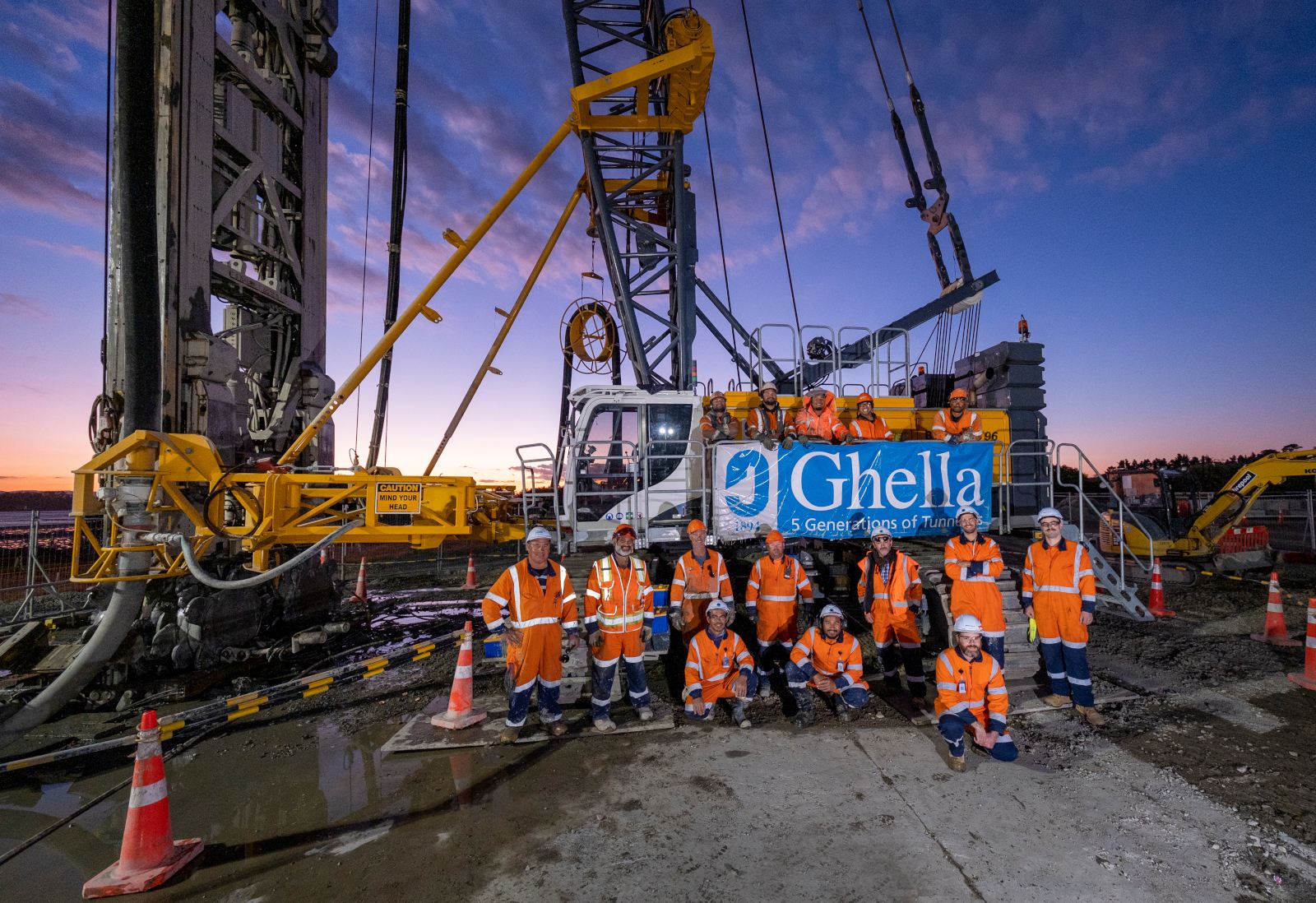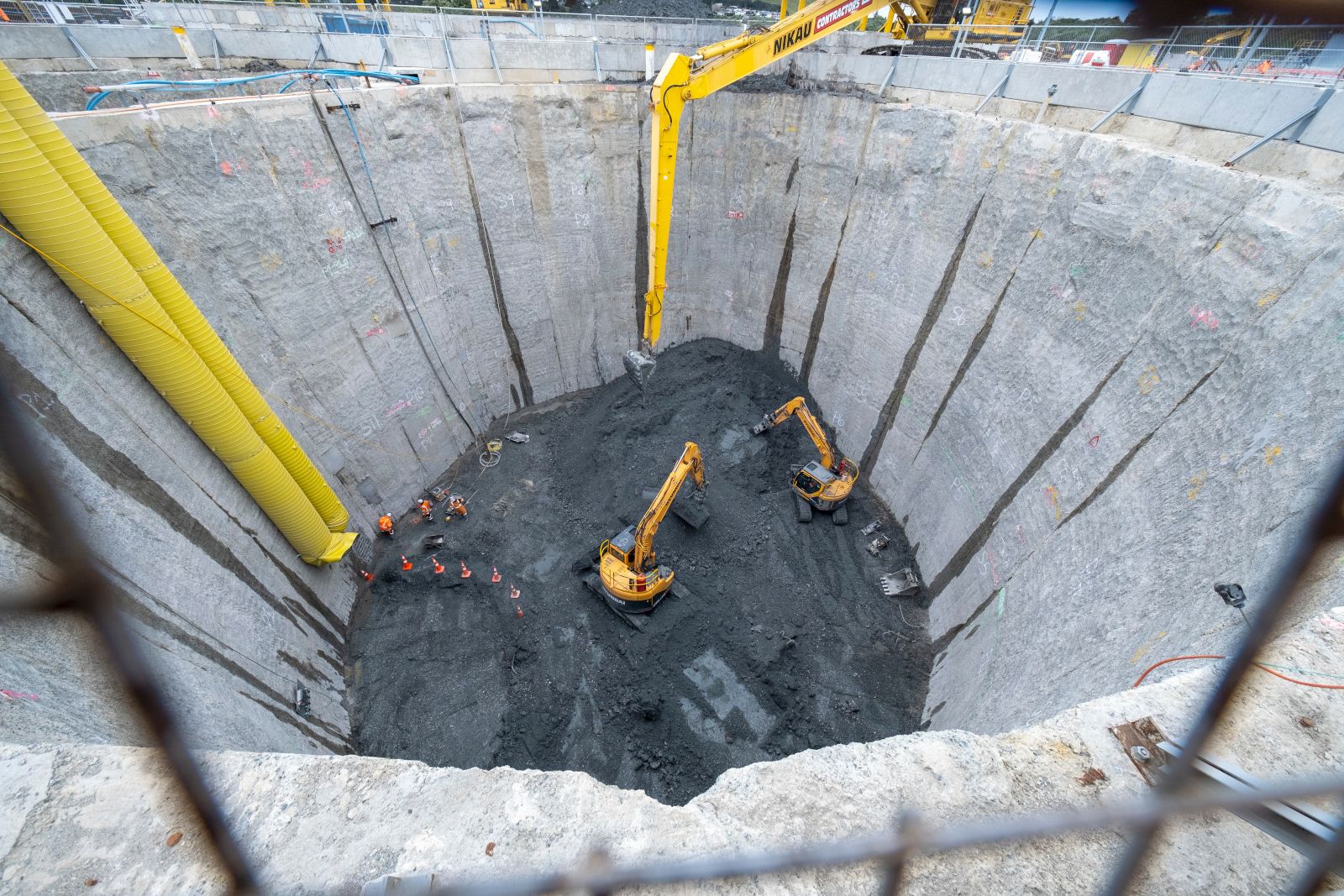Central Interceptor names micro-TBM Domenica
01-28-2021
Central Interceptor Project (CI) has unveiled its micro Tunnel Boring Machine (mTBM), Domenica. Domenica was chosen following the project-wide naming competition and is significant for the Ghella family as it dates back 150 years. She is one of two TBMs being used on the Central Interceptor project in Auckland.
The Central Interceptor is New Zealand’s largest wastewater tunnel and will run between Grey Lynn and the Māngere Wastewater Treatment Plant. The tunnel is between 15 and 110 metres underground and will cross the Manukau Harbour at about 15 metres below the seabed. Along the route it will connect to the existing wastewater network, which will divert flows and overflows into the tunnel. This six-year long $1.2 billion project is being undertaken by the Ghella Abergeldie Joint Venture and will be completed in 2025.
Domenica, a micro-TBM is over 12m long and has an external diameter of approximately 2.5 metres and will excavate the two link sewers at an overall length of 4.3km. These link sewers connect to the 14.7km long main tunnel. The main tunnel will be excavated using a larger 5.45m external diameter Earth Pressure Balanced Tunnel Boring Machine (EPB TBM).
As far back as the 1870s, the name Domenica has been an important part of Ghella’s history with the wives of forefather Domenico and his son, company founder Adolfo, both named Domenica. These women were integral to the Ghella family, as the hard-working mothers and wives supporting the family business behind the scenes. The women understood the need for exploration and encouraged their husbands to travel and discover in the hope of learning about new foreign lands. Today, some five generations later the Ghella family of explorers and tunnellers have constructed and delivered major infrastructure projects across the world.
The project provides a supersized wastewater tunnel that will significantly reduce waste water overflows into central Auckland’s waterways. The increased capacity in the wastewater network also provides for future growth and development on the Auckland Isthmus for the next 50 years and beyond.
The CI Project is committed to building a better future for Tāmaki Makaurau and in today’s climate where COVID-19 separates many of our families, it is a fitting tribute to honour a name that represents the importance of the support we receive from mothers and wives, acknowledging the key role they play both at home and in the workplace.
BENVENUTA, HAERE MAI, WELCOME DOMENICA!
To find out more about our founding fathers and the Ghella history visit the following link https://www.ghella.com/en/history




